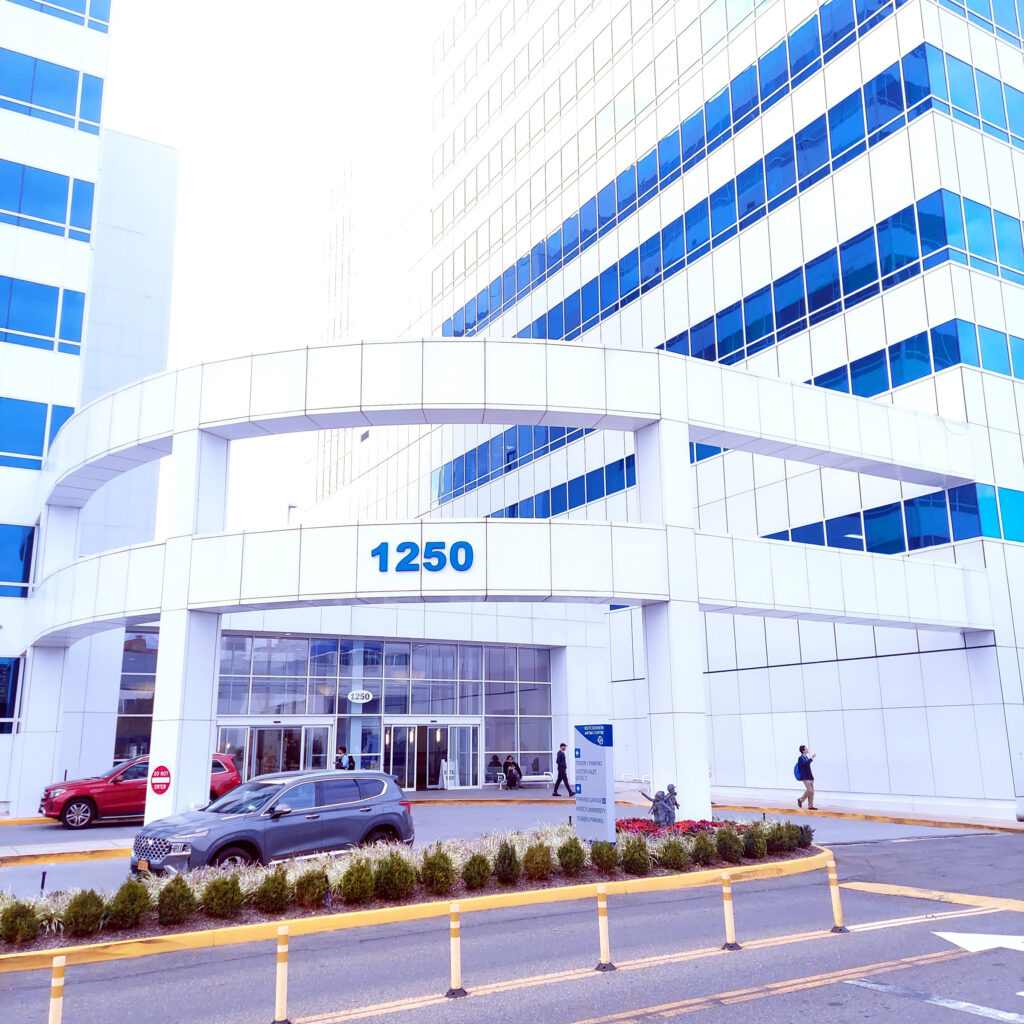
Photo by David Greene
Two related blood cancers that disproportionally target older adults, acute myeloid leukemia (AML) and myelodysplastic syndromes (MDS), are notoriously difficult to treat and are associated with high relapse rates, according to medical experts at Montefiore Einstein Comprehensive Cancer Center (MECCC). Although new therapies have improved survival rates, they say treatment options remain limited, and the prognosis for the 50% of people who have these cancers, remains poor.
Researchers at the National Cancer Institute-designated MECCC which, as reported, opened last September, were recently awarded a 4-year, $2.6 million grant from the U.S. Food and Drug Administration (FDA) to conduct what they describe as an innovative, phase 1 clinical trial of a new drug for patients with relapsed and treatment-resistant forms of AML and MDS. Medical experts at the center say the grant is one of only ten issued this year by the FDA through its Office of Orphan Products Development.
Aditi Shastri, M.D., the principal investigator who is utilizing the grant and who is a member of MECCC’s stem cell and cancer biology research program and blood cancer institute, said, “This is a tremendous opportunity to apply the knowledge we have developed in our MECCC labs over the past decade to develop a novel therapeutic strategy.” Shastri is also associate professor of oncology, medicine, and developmental and molecular biology at Albert Einstein College of Medicine.
According to MECCC medical experts, drugs that initially work against AML are ineffective when the disease returns. They say research suggests that such treatments leave behind leukemic stem cells that are resistant to existing medications and lead to relapsed and drug-resistant AML and MDS.
Shastri said the team at MECCC identified a molecular target in leukemic stem cells and a novel drug that performed well against those stem cells in pre-clinical studies. “We are eager to see if this drug and its combinations can provide clinical benefit for our patients,” she said.
According to MECCC medical experts, AML and MDS are rare diseases with among the worst prognoses of all cancers. They say most people who develop relapsed or treatment-resistant disease live for only another four to ten months. Since AML is so difficult to treat, they say most patients receive care at academic cancer centers. They add that MECCC, with its blood cancer institute and stem cell and cancer biology research program, is one of a few institutions in the country specializing in AML and MDS.
MECCC medical experts said that in 2018, Shastri and colleagues found that relapsed AML and MDS patients with the worst prognosis have leukemic stem cells that produce excessive levels of the protein STAT3. In subsequent studies, her lab found that STAT3 does several things to help MDS and AML cancer cells survive.
Most importantly, they found that STAT3 prevents cancer cells from undergoing apoptosis i.e. programmed cell death [of the cancerous cells]. They said the goal of a major AML/MDS drug called venetoclax is to kill the cancerous cells. Shastri hypothesized that blunting the impact of STAT3 could allow venetoclax to work more effectively and lead to better outcomes for patients.
Shastri and her team looked for drugs that specifically target and inhibit STAT3, and identified a novel drug called danvatirsen, developed by Flamingo Therapeutics and Ionis Pharmaceuticals, that is now being developed as a cancer treatment in early-phase clinical trials. After conducting preclinical tests, which indicated that danvatirsen showed promise against AML/MDS, Shastri is now set to investigate the drug in a phase 1 clinical trial.
The trial is slated to begin this month and will enroll patients with therapy-resistant MDS and AML at MECCC and MD Anderson Cancer Center in Houston, Texas, MECCC experts said. “Since this is a phase 1 trial, our first priority is to determine the safety of danvatirsen when used alone and in combination with venetoclax, as well as the optimal dosages for the two drugs,” Shastri said. “We will investigate the effect of danvatirsen, alone and in combination with venetoclax, on leukemic stem cells.”
MECCC medical experts said that if the researchers find evidence that the experimental treatment produces initial successful results, they will expand the study to a phase 2 trial to further assess the treatment’s effectiveness. They said the co-principal investigator of the clinical trial is Naval Daver, M.D., at the MD Anderson Cancer Center. MECCC experts said the MECCC co-investigators utilizing the awarded research grant are Marina Konopleva, M.D., and Ulrich Steidl, M.D., Ph.D.
The grant is titled, “A phase 1 study investigating the safety & efficacy of danvatirsen as monotherapy, followed by combination with venetoclax in patients with relapsed/refractory MDS & AML.” (R01FD007836).
To mark the launch of Lung Cancer Awareness Month, which began on Nov. 1, Montefiore Einstein Comprehensive Cancer Center (MECCC) hosted an event at its Moses campus in Norwood, along with a pair of giant, inflatable lungs in efforts to help educate the community about the importance of life-saving lung cancer screening.
Meanwhile, in October, the Children’s Hospital at Montefiore held a Halloween event, as reported, for children with diabetes, who were allowed exchange the regular candy they obtained while trick or treating with less sugary treats.
Also in October, past patient graduates of Montefiore’s Jack D. Weiler Hospital Neonatal Intensive Care Unit (NICU) gathered for a “Spooktakular Costume Party” on Monday, Oct. 30, for the first time since the pandemic.




